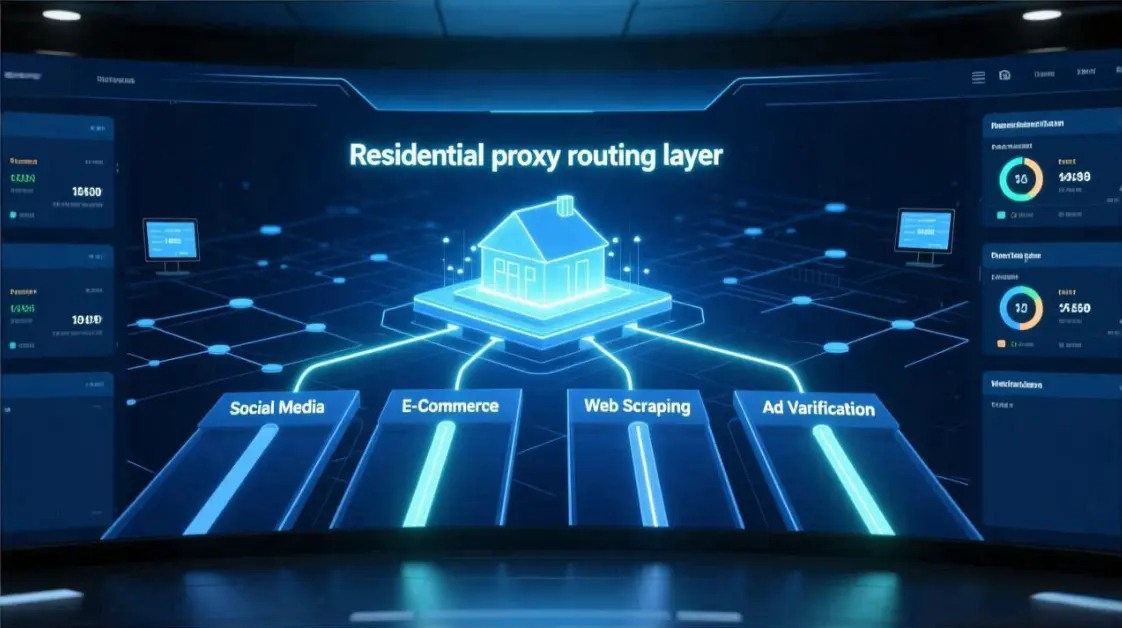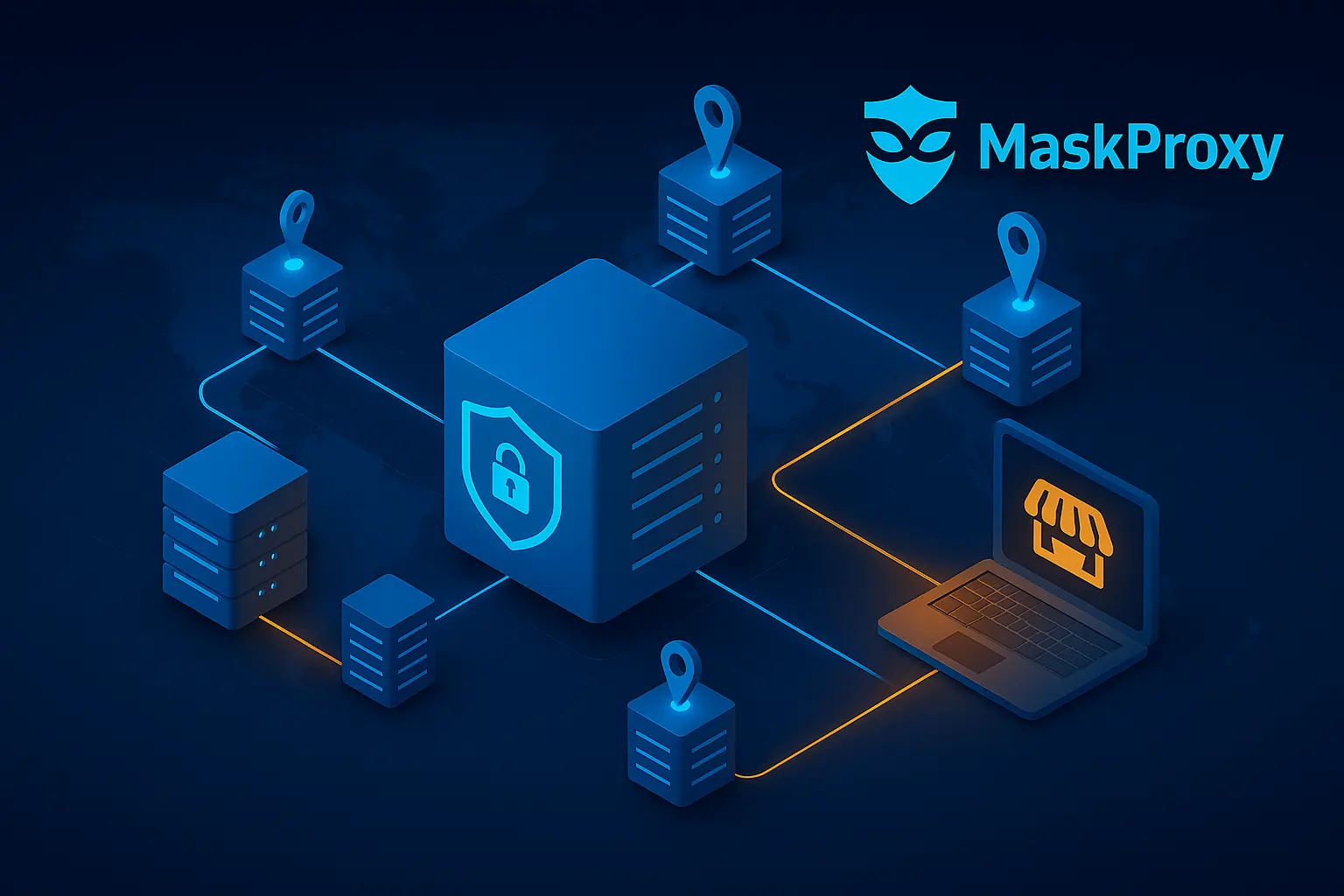Anonymous Proxy Strategies for Stable, Low-Risk Multi-Region Operations

Operators and marketing teams often struggle with identity friction when scaling cross-region tasks. An anonymous proxy helps present cleaner, more consistent signals, improving stability and reducing detection spikes that break campaigns or multi-account workflows. For teams validating landing pages, running localized ads, or coordinating distributed automation, MaskProxy adds a predictable layer of IP quality and session control. With the right configuration, you gain steadier requests, safer testing loops, and more reliable geo-specific performance validated through a structured setup like the anonymous proxy endpoint.
Why Anonymous Proxy Behavior Matters to Modern Platforms
Platforms rely on hundreds of small indicators—IP type, reputation, location accuracy, and device alignment—to decide whether an action looks natural. If these signals fluctuate too much, sessions reset, pages throttle, or accounts get paused for review. Stable identity reduces that noise.
Teams handling multi-region tasks need predictable behavior. Session stability keeps workflows intact, allowing long-form QA tests and localized ad checks to run without repeated logouts. A consistent network identity also reduces friction for campaign uploads and creative approvals.
Modern risk engines are sensitive to unusual request patterns. Clean IP pools minimize these anomalies. With a structured network layer, you reduce rate-limit noise and maintain smoother daily throughput.
How an Anonymous Proxy Works Behind the Scenes
Anonymous proxies hide direct origin signals by routing requests through controlled IP nodes. The proxy becomes the visible identity, presenting location, ASN, and reputation aligned with your workflow’s regional needs.
A well-maintained proxy pool improves traffic continuity. When the IP reputation remains clean, request flows see fewer stalls or temporary verification screens. This allows operators to focus on creative uploads, lead funnels, or product listing changes rather than troubleshooting routine blocks.
Routing consistency matters. When your proxy delivers steady latency and region-accurate endpoints, your automations behave more naturally. The result is better success rates on tasks that require fine timing or prolonged sessions.
Choosing Anonymous Proxy Settings for Business Workflows
The right configuration varies by task volume, region mix, and operational sensitivity. A calibrated setup improves reliability. Teams running account clusters or iterative QA cycles benefit from matching IP location to the platform interface through contextual signals available at the anonymous proxy page.
Session duration matters. Extend session length for long workflows; shorten it for modular tasks that repeatedly reconnect. Balanced rotation frequency helps reduce repetitive behavior patterns that may trigger anti-abuse checks.
IP reputation should match your vertical. For example, ecommerce listing teams need cleaner IP pools than lightweight data verification scripts. Selecting parameters that mirror natural user behavior helps reduce unexpected security checks.
When to Combine Anonymous Proxy With Rotating Pools
Some workloads require constant variation—especially distributed QA jobs, feed monitoring, or region-wide data sampling. A rotating proxy helps diversify IP identity, preventing repetitive patterns across high-frequency operations and reducing systemic throttling risks.
Rotating pools provide natural distribution across cities and carriers. This creates more realism in tasks like multi-location landing-page validation or ad preview retrieval. Distributed identity also helps maintain predictable success rates during heavy parallelization.
For scraping-like workloads bound by compliance requirements, rotating endpoints add resilience without escalating risk. Controlled rotation intervals stabilize throughput and reduce random request drops, enabling smoother batch processing with a reliable dynamic address pool.
Static Residential IPs for Long-Session Identity Control
Some workflows rely on long-duration sessions, such as ad approval flows, catalog management, or account health tracking. For these needs, static residential proxies provide persistent identity, offering predictable behavior across hours—or days—of continuous platform use. A well-scoped configuration linked with static residential proxies supports operator stability.
Persistent IPs help reduce the frequency of verification prompts. When platforms see the same consistent identity, risk signals remain stable, supporting seamless multi-hour tasks. It also simplifies debugging since variables remain constant.
For long-lived accounts, static IPs create session reliability. Teams with ongoing optimization cycles can iterate quickly without battling disruptive connection changes or location mismatches.
Reducing Detection Risk Without Violating Platform Rules
Compliance remains essential. Risk engines detect behavior, not just IPs. Avoid repetitive patterns, aggressive automation, or inconsistent device profiles. Proxies support natural operations but cannot—and should not—bypass platform security measures.
Maintain realistic task pacing. This prevents abrupt request spikes that trigger cooldowns or rate limits. Align geo-signals with operational needs to reduce mismatches between IP, language preference, and workflow intent.
Monitor account health proactively. Logs and error rates highlight when identity alignment drifts, allowing fine adjustments. MaskProxy’s stable routing helps you observe network behavior clearly, making troubleshooting more efficient across large account sets.
A structured proxy identity makes daily operations smoother. Consistent regional signals lower friction and help ensure that multi-account, multi-market tasks run predictably across long durations. As you refine your setup, evaluating location consistency and session durability through semantic variants like the US-based identity endpoint helps create a cleaner operational baseline. When needed, selectively incorporating stable residential IP blocks strengthens long-session reliability without overwhelming your setup.






